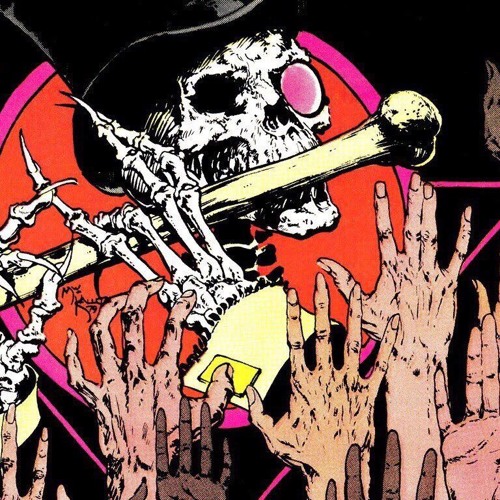

We desire creativity, freedom, stories, illusion, applause, a team, agency, travel – in fact: a life filled with imagination. Now, I acknowledge that your path won’t be an easy one – but that’s one reason why we all feel so at home in the theatre, isn’t it? We’re not regular people, nor do we seek the ‘normal’ life. ‘Success’, from this point forward, will be when you have begun to take steps towards achieving an income from your artistic work and the ‘industry’ will now be called your ‘trade’. These two nouns are responsible for so many artists falling by the wayside because they seemingly couldn’t get into the industry nor achieve success. Next, you need to redefine two words: ‘industry’ and ‘success’. Sarah-Louise Young in An Evening Without Kate Bush, made by Sarah-Louise Young and Russell Lucas (Photograph by James Millar) It’s only then – after you’ve given voice to your ambition – that the flimsy, self-imposed barriers that have stopped you from seeing the theatre as a real job will melt away. You should also acknowledge you really do wish to live your life in the theatre. One piece of immediate advice I can offer you is that you should resolve right now that, no matter what, you’re going to stick around. So, how did I do it? And how can you make a successful and long career in the arts? Well, what type of career do you want? I wanted to live and work in there forever, and thanks to my teenage whisper finally finding a voice, I got there. Its magic, its possibilities and its warmth were palpable to me.
#Dont call me up navel soundvloud how to#
Admittedly, I didn’t know where I wanted to go next or how to get there but, as it turns out, it’s enough to keep pulling at a thread, because I’m here now, working in the arts, despite society telling me that I couldn’t, and my parents saying that I probably shouldn’t.įrom a very early age, every time I went into a theatre I felt completely at home. So, one week after my sixteenth birthday, I began real-jobbing in my local chippy, The Plaice To Be, and one week and one hour after my sixteenth birthday, I silently whispered: ‘This isn’t the place for me’. Any deeper discussions about utilising your existing skill set or having a career… Well, there were no debates on either of those, as no one knew what they were and we probably couldn’t afford them anyway. When you reached your sixteenth birthday you were expected to work in a chip shop or on the pier and that was you done. I come from Clacton-on-Sea in Essex, where it’s all about economic survival – and back in the seventies and eighties it was even more so. Of course, I’m being glib, as we’re all allowed to work in the theatre, but that message doesn’t always get through to society – let alone to the lost artists who’ve been encouraged to ‘Go get a real job’. With a background like mine, you’re really not supposed to work in the arts – never mind be successful and then write a book about it. And why not? In his new book, 300 Thoughts for Theatremakers, he offers inspiration and encouragement for theatremakers everywhere, and argues that the maverick, hybrid, jack-of-all-trades theatremaker is what’s needed now, more than ever. He’s a writer, deviser, producer, actor and director – often all at once. At least, not according to conventional theatre categories.


 0 kommentar(er)
0 kommentar(er)
